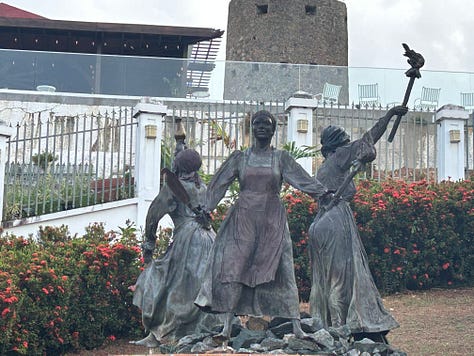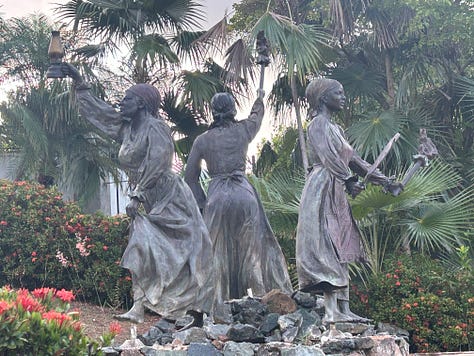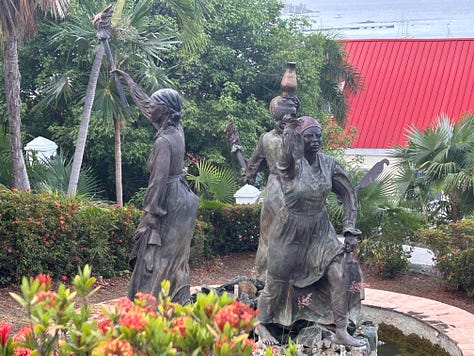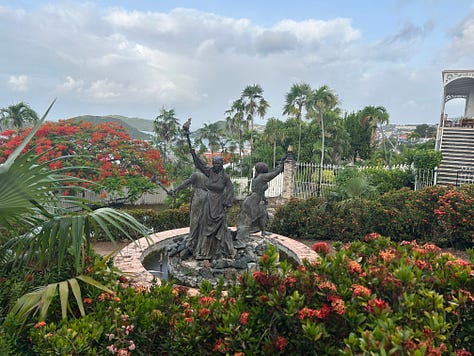In my post, “The Hypocrisy of Freedom,” I wrote about how justice and freedom are often delayed. In this post, I want to share about a statue in my neighborhood in Charlotte Amalie, St. Thomas.
It’s called the “Three Queens,” and it’s obvious that these are not queens of the regal sort. The statue commemorates three women (it could be four), Mary Thomas, Axelene "Agnes" Salomon, and Mathilda McBean. Susana Abramsen was later added to the history of the story. The women are carrying torches, a lantern, and a machete. They are symbols of the labor movement and the fight for reasonable working conditions in the 1800s.
After “freedom” was granted to the slaves of the Danish West Indies in 1848, the Labor Act of 1849 was passed to effectively bind former slaves to plantations through highly restrictive one-year contracts. This law restricted opportunities for increases in pay, upward mobility, and adequate living conditions.
Things culminated in a violent uprising on October 1, 1878, known as “The Fireburn,” as leaders in the labor movement resisted their oppression. There are many layers that are too deep for me to get into here. But if you want to learn more, I encourage you to look it up.
As a follower of Christ, I try to keep my loyalty to God first and foremost. But I also try to live in a way that God’s concern for justice is reflected in how I treat my neighbor. The story of The Good Samaritan (Luke 10:25-37) is the focus of my sermon this Sunday.









To love a neighbor, one needs to be willing to acknowledge when things are not right, when things are not the way they are supposed to be. The Church is called to a prophetic witness, where folks need the courage to tell uncomfortable truths and acknowledge the pain of people who have been oppressed.
I grieve over some of the things I’m learning. I pray that God keeps my heart open with compassion for my neighbors here on St. Thomas and in the Virgin Islands.



